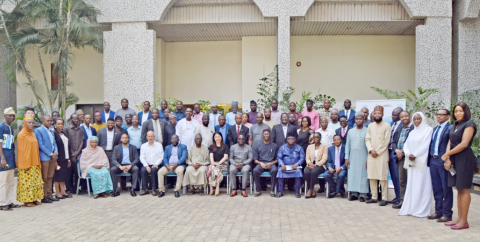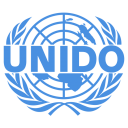The International Small Hydropower Training in Abuja, Nigeria Comes to an End
Access to clean, affordable and reliable modern energy is crucial for sustainable socioeconomic development. For this, Small Hydropower Plants offer a technically feasible and economically viable option. But still majority of the countries in East and West Africa have not fully utilized their vast Small Hydropower potential. This is due to barriers such as limited technical capacities and missing standards among others. With this in mind, the International Small Hydropower Training was organised in Abuja, Nigeria.
The training that started on 19 March 2024 came to an end on 22 March 2024. It brought together technical experts, policy makers and project developers from National Standards Bureaus and Ministries Responsible for Energy from the East African Community and the Economic Community of West African States. The training covered several aspects on Small Hydropower. These included site selection planning, designing, construction management, economic appraisal, hydrology, engineering hydraulics and geology. There were also insightful presentations from the various countries on lessons learnt, experiences, standards and role of small hydropower in socioeconomic.
The opening day was physically attended by over 100 individuals and it included key note speeches from top government officials from the energy sector of Nigeria, United Nations Industrial Development Organisation, East African Centre of Excellence for Renewable Energy and Energy Efficiency, ECOWAS Centre for Renewable Energy and Energy Efficiency and the International Centre on Small Hyro Power. When giving an overview of the ISO/TC 339 which provides technical guidelines for Small Hydropower Plants, Ms Yingnan Zhang from the International Centre on Small Hydro Power had the following to say.
“From Africa, only Nigeria and Kenya are party to the ISO/TC 339 on Small Hydropower Plants. I encourage the rest of the countries present today to become party of the TC 339. We are happy to guide you through the process” Ms Yingnan Zhang.
The experience sharing saw, three presentations from the East African Community. The first presentation titled the Role of Small Hydropower and Energy Planning in the East African Community came from Mr Yunus Alokore of the East African Centre of Excellence for Renewable Energy and Energy Efficiency. Then Mr Ochieng Julius from the Ministry of Energy and Mineral Development presented about the lessons learnt and experiences of Uganda in Small Hydropower Development. A third presentation by Mr. Alex Mboa from the Kenya Bureau of Standards focused on experiences of Kenya on the TC-339 Procedures. One of the participants Mrs Winnie Grace Onziru from the Uganda Bureau of Standards had the following to say.
“I have learnt a lot from the technical topics covered by the highly qualified professor and the experience sharing by the participants from the other countries. Bringing likeminded people from the EAC and ECOWAS was a great idea” Ms Winnie Grace Onziru.
The second, third and fourth days were each attended by over 70 participants from more than 12 countries. The training also brought together technical experts from the three Regional Sustainable Energy Centres in Central, East and West Africa. On the side lines, the Centres held successful meetings to chart a way forward on developing joint projects, sharing experiences and peer-to-peer learning.
The Small Hydropower training was jointly organised by the United Nations Industrial Development Organisation, International Centre on Small Hydro Power, the ECOWAS Centre for Renewable Energy and Energy Efficiency and the East African Centre of Excellence for Renewable Energy and Energy Efficiency.





